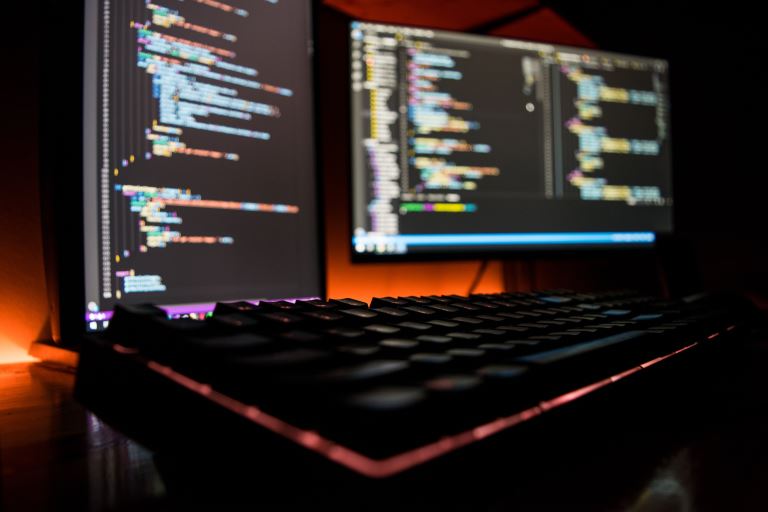
What Are the Interesting Facts You Never Knew About Programming
pThere are several facts about programming there are more than twenty Asian programming languages the first programmer was a woman the first computer bug was a moth a kid created the first computer virus and coding is a lucrative careerp
Have you ever come across information about programming and failed to detect whether it was a fact or a myth? Many people have come across that; I want to shed some light on a few things about the subject. This article is well-researched to guide you in learning interesting facts you didn't know about programming.
There are several facts about programming; there are more than twenty Asian programming languages, the first programmer was a woman, the first computer bug was a moth, a kid created the first computer virus, and coding is a lucrative career.
Learn more about the differences between a computer and a human and the facts about programming. Also, learn more about the future of programming.
What Are the Interesting Facts You Never Knew About Programming
Programming is a collaboration between humans and computers. It's all around us-people use code daily, like during streaming movies. Before, only a few people were familiar with coding. However, that has changed, and programmers are increasing in large numbers. We communicate with computers by giving instructions through code. Coding helps translate human language into a language that computers understand.
Computers are specific, and it is crucial to be very literal and careful when coding to avoid errors; punctuation and spelling must be correct to code successfully. It's important to note that they excel at some tasks while failing miserably at others. However, the good news is that humans are better than computers at things they are bad at and vice versa. As shown in the table below;
| Humans | Computers |
| Are creative thinkers | Only follow the given instructions |
| Pass information through inference. | Have limited knowledge |
| Are inconsistent | Computers are very consistent |
| Often get bored | Never lose focus |
What Are the Facts About Programming
Below are the interesting facts you never knew about programming:
There are more than twenty Asian programming languages
About a third of the approximately 8,000 programming languages use English for coding, while the rest are non-English based, with a few employing only symbols. This comprises twenty Asian programming languages, including the Hindi Programming Language, PerlYuYan (Chinese), Changjo (Korean), Dolittle (Japanese), and BAIK (Indonesian). In Asia, programming languages are very many as computer technology is developing rapidly and evolving.
The first programmer was a woman
Ada Lovelace1, The daughter of the great poet Lord Byron, is famous for being the first woman computer programmer. However, these days, very few women venture into technology. She is renowned for her work on the Analytical Engine, Charles Babbage's design for a general-purpose mechanical computer. She also created the first algorithm designed to be processed by a machine, a revolutionary concept at the time. The device had purposes beyond simple computation and described possible applications for such a device in producing music and other artistic works.
In her honor, the US Department of Defense created the Ada programming language named after Lovelace. Later on, Ada was developed to be a high-level programming language that could create complicated software systems like aerospace and defense applications. Even today, the military still utilizes Ada, especially in safety systems.
It pays to know to code
The majority of people mostly have and use both a computer and a cell phone. The world is becoming increasingly saturated with web services like YouTube, Netflix, and Facebook. All of these indicate the areas where future professions and skill sets are likely to be in demand, and learning to code will make you more marketable in finding a job.
Also, people who aspire to work in non-technical fields may find learning to code helpful. Coding abilities can be valuable in industries like banking, marketing, and research for data analysis, automating repetitive processes, and developing infographics.
The first computer bug was a moth
According to legend, a group of engineers working at Harvard University found a faulty device brought on by a moth that flew inside the machine and got stuck. The group discovered the moth and marked it as the "first true incidence of bug being found" in the logbook. Because of this incident, the term "bug" is still used today to refer to issues with a computer program or system. Since then, the procedure of locating and fixing faults in computer programs and systems has been referred to as "debugging."
A kid created the first computer virus
The "Elk Cloner" virus, developed in 1982 by Rich Skrenta, a 15-year-old high school student, is primarily regarded as the first computer virus. It was a boot sector virus transmitted via floppy disks to infect Apple II computers. When a floppy disk was introduced into the computer, the virus would infect the boot sector before copying itself to the disk. The infection was a playful prank that Skrenta's buddies played on each other and was not intended to harm the infected PC in any way.
What Is the Future of Programming?
Programming will still be a vital ability in high demand in the future. Programmers will need to be flexible and able to work with a variety of programming languages and technologies. Below are a few ways to show the future of programming through emerging trends:
Advancements in AI, ML, and NLP
The software will probably get more complex as artificial intelligence (AI), machine learning (ML), and natural language processing (NLP) evolve. Systems that can learn and adapt to new situations can be built using AI and ML, making them more intelligent and competent than conventional software. As a result, NLP, which enables computers to comprehend and respond to human language, can be made more logical and natural.
With these technologies' aid, the software can carry out complex tasks like decision-making, speech recognition, language translation, and image recognition. With little human involvement, the software can evaluate enormous volumes of data, generate predictions, or even automate decision-making.
Programming will be more abstract and accessible
Recent trends like serverless techs and low code platforms indicate that programmers may work at greater levels of abstraction in the years to come. A growing emphasis on creating tools and languages that are simple to learn and use, especially for those without a background in computer science, is a result of the increased focus on making programming more approachable and user-friendly.
Low-code and no-code platforms, which enable users to create software without writing any code at all, are also on the rise. These platforms offer a visual interface for developing and delivering software, making it possible for non-technical professionals like business users, data analysts, and other professionals to design and deploy their applications.
A common programming language will arise
Specialized software and programming languages will be adapted to various areas to create new programming languages and tools optimized for particular activities or industries. For instance, languages and frameworks are made especially for machine learning, data analysis, and web development. Developers may find it simpler to produce code that is effective, secure, and tailored to the unique requirements of their application.
In data science, the availability of potent libraries like NumPy, pandas, and sci-kit-learn has made Python a popular language for machine learning and data analysis. Similarly, JavaScript has gained popularity in web development for building engaging web applications.
Conclusion
Everyone must know what programming is and how it's used as it becomes a more significant part of our life. The above facts will help you understand what to believe and what not to. It also affects how we engage in politics, make purchases, and maintain relationships with one another. The journey of learning to code is exhilarating, but it's a talent that will serve you well in life. Whether your objective is to create a mobile app, search a database, or program a robot. Reach out for effective programmer services.








